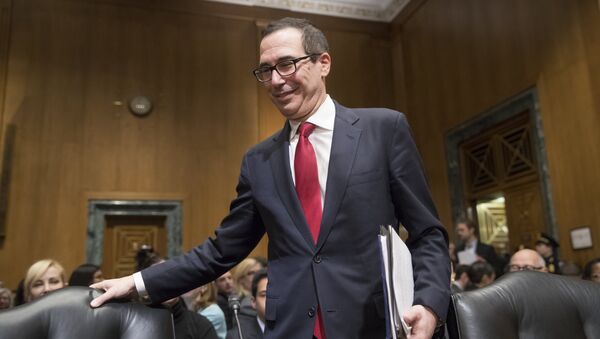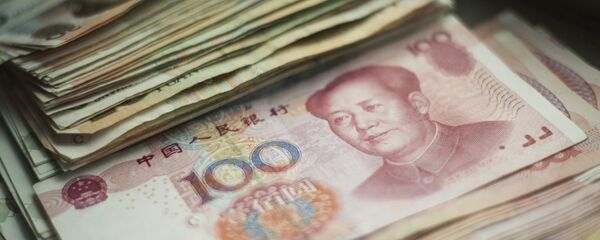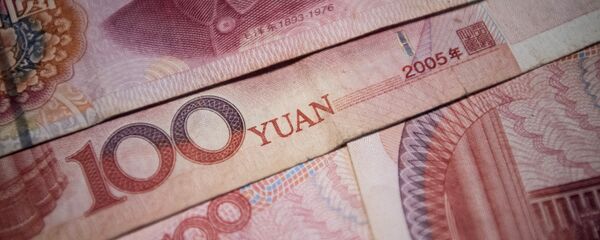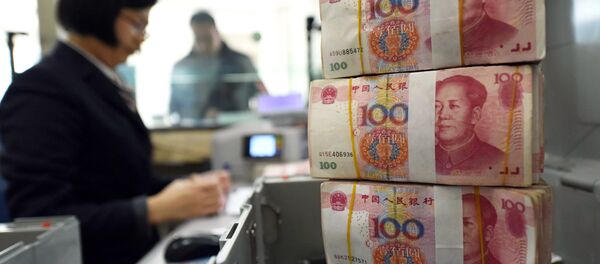Kristian Rouz – As the new US administration begins to take shape, it is reconsidering the nation’s approach to foreign trade leaning increasingly protectionism. President Donald Trump’s pick for Treasury Secretary Steven Mnuchin reiterated the perception of the greenback as too strong and therefore harmful for the US economy.
The recent US withdrawal from the Trans-Pacific Partnership (TPP) project supports the growing confidence among traders and investors that the new administration is adamant in fostering the competitiveness of US manufacturers. Therefore, conscious and coherent measures aimed at devaluing the dollar are now seen as a matter of time, likely, a near-term perspective.
US Treasury Secretary nominee Steven Mnuchin said on Monday that the dollar is overvalued, bearing near-term negative consequences to the US productive forces.
“The strength of the dollar has historically been tied to the strength of the US economy and the faith that investors have in doing business in America,” Mnuchin said.
“From time to time, an excessively strong dollar may have negative short-term implications on the economy.”
“A stronger dollar increases US dollar purchasing power,” Mnuchin observed. “To the extent the dollar gains strength relative to other currencies, assets priced in those other currencies would become cheaper on a dollar basis.”
Previously, Mnuchin worked with Goldman Sachs, and is currently undergoing the process of Senate approval for the office of Treasury Secretary. By having selected an ex-banker to run the nation’s finance, President Donald Trump boldly demonstrated his desire to acquire more control over the monetary aspect of the economic policy, which might lead to a conflict with the Federal Reserve.
The Fed, on their part, are committed to normalizing the US monetary policy by raising the costs of borrowed liquidity, which inevitably adds an upward pressure on the dollar’s FX rate. The US Treasury’s likeliest goal would be quite the opposite, as Mnuchin also expressed an intent to counter the Chinese currency devaluations.
“… the issue of Chinese currency manipulation (is) a serious infraction of free trade principles and needs to be effectively addressed,” Mnuchin told the Senate Finance Committee. “I will ensure that we defend American jobs by combating currency devaluation through legislative processes established by Congress.”
Meanwhile, as the US has just formally exited the TPP project, and Trump is preparing to renegotiate NAFTA, the dollar is seen as a less attractive asset in international currency trading. Trump favors a protectionist approach to foreign trade, meaning higher customs tariffs and a more restricted movement of capital, labor and goods across the US border overall.
"The market doesn't like this increased protectionist stance. For now, at least, it's reassessing the impact of that relative to the pro-investment stance that drove the US dollar higher," Sue Trinh of the Hong Kong branch of Royal Bank of Canada said. "It's now just watching and waiting, with headline risk, to see Trump's first 100 days as we get greater clarity around his policies and around his cabinet, all of these are likely to inject greater volatility into the market.”
As the dollar slides, the US Treasuries have gained in value slightly as yields dropped, also contributing to the drag on the greenback. As the US currency’s safe haven status becomes questionable, investors are tuning to gold and fixed-income. However, the Treasuries market is becoming increasingly speculative due to the lack of certainty regarding the near-term White House policies and the Federal Reserve’s timeline of rate hikes.
“It seems like the bulk of opinion is still leaning toward higher rates,” Robert Tipp of Prudential Financial Inc. said. “I’m dubious.”
Currently, the market is pricing in the US Fed rates at the level of 1.12pc a year from now, according to the overnight index swaps. Prior to Trump’s election in November, the anticipated rate was priced in at the level of 0.69pc.
Should Mnuchin be appointed as Secretary of the Treasury, the direction of the fiscal and broader economic policies will determine downward dynamics in the dollar’s FX rate. Yet, the Fed’s tightening monetary conditions will push the dollar up. All this means that the dollar’s devaluation is not yet certain, but the prerequisites for a major realignment on global currency trading are already brewing.






